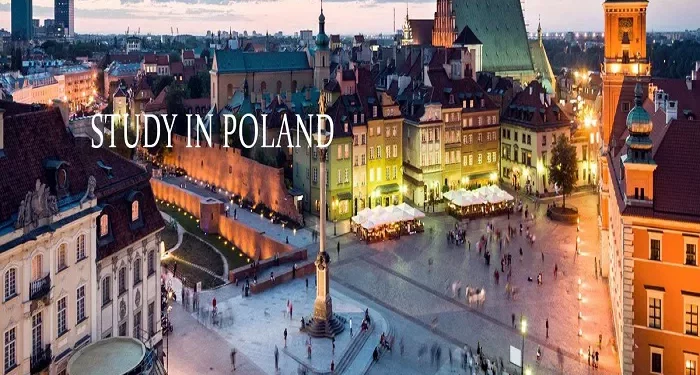The ease of studying in Poland can vary depending on several factors, and it is a complex assessment that takes into account multiple aspects of the academic and living environment. Here is a detailed exploration of whether it is easy to study in Poland.
Academic Environment
Quality of Education
Poland offers a relatively high quality of education. Many of its universities have a long history and a strong reputation in various fields. For example, in fields such as mathematics, physics, and engineering, Polish universities have produced notable research and graduates who have made significant contributions in their respective industries. The curriculum is often designed to be comprehensive and up-to-date, incorporating the latest knowledge and trends in the global academic community. Professors and instructors are generally well-qualified, with many having advanced degrees and extensive research and teaching experience. They are dedicated to imparting knowledge and skills to students, which can enhance the learning experience. However, the academic standards can be demanding, and students are expected to put in a significant amount of effort to meet the requirements and succeed in their studies.
Teaching Methods and Styles
The teaching methods in Polish universities can vary. Some courses may rely on traditional lecture-based teaching, where professors deliver lectures and students take notes. This can be effective for imparting theoretical knowledge, but it may require students to be active listeners and good note-takers. On the other hand, there are also courses that incorporate more interactive and practical elements, such as group projects, case studies, and laboratory work. These methods can help students develop problem-solving skills and the ability to work in teams, which are valuable in the professional world. However, for international students who are not used to these teaching styles, there may be an initial adjustment period. They may need to adapt quickly to the different ways of learning and actively engage in class activities to make the most of their studies.
Coursework and Exams
The coursework in Poland can be challenging but also rewarding. It typically includes a combination of assignments, projects, mid-term exams, and final exams. The workload can be substantial, especially in some of the more demanding programs like medicine or engineering. Students need to manage their time effectively to complete all the tasks and prepare well for exams. The grading system is usually strict and objective, which means that students need to demonstrate a good understanding of the subject matter to achieve good grades. Exams may test both theoretical knowledge and practical application, requiring students to have a comprehensive understanding of the course content. While this can be difficult, it also ensures that students are well-prepared and competent in their field of study.
Language Barrier
Language of Instruction
The language of instruction in most Polish universities is either Polish or English, depending on the program. For programs taught in English, international students may find it relatively easier to communicate and understand the coursework. However, even in English-taught programs, there may be some interactions with local staff or in the broader university environment where knowledge of Polish can be beneficial. For students who choose to study in Polish, the language barrier can be more significant. Learning Polish is not easy, as it has its own grammar and pronunciation rules. It may take several months or even years of dedicated study to become proficient enough to follow lectures, participate in discussions, and complete assignments in Polish. This can pose a challenge for international students, especially in the initial stages of their studies.
Adaptation and Communication
Overcoming the language barrier also requires adaptation and effective communication skills. Students need to be proactive in improving their language skills, whether it’s through language courses, self-study, or interacting with local people. In the university setting, they may need to ask questions, seek clarification, and participate in group activities to improve their communication and understanding. However, with time and effort, many students are able to overcome the language barrier and integrate well into the academic and social life in Poland. The ability to communicate effectively in the language of instruction is crucial for building relationships with professors and fellow students, accessing resources, and fully engaging in the learning process.
Cost of Living and Financial Aspects
Affordable Living Expenses
One advantage of studying in Poland is the relatively affordable cost of living compared to some other European countries. Accommodation, food, transportation, and other daily expenses are generally manageable on a student budget. Student dormitories are available at a reasonable cost, and renting an apartment outside the campus can also be affordable, especially in smaller cities or less central areas. The cost of food is also relatively inexpensive, with a wide range of options from supermarkets to local markets. Public transportation is well-developed and affordable, allowing students to easily get around the city. This means that students can focus more on their studies without having to worry too much about exorbitant living costs. However, it’s still important for students to manage their finances carefully and budget appropriately to ensure they have enough money to cover all their expenses throughout the study period.
Scholarship and Funding Opportunities
Poland offers various scholarship and funding opportunities for both domestic and international students. These can help ease the financial burden of studying. Some scholarships are based on academic merit, while others may be related to specific fields of study or research projects. Universities and government organizations provide these scholarships to attract talented students and support their education. Additionally, there are part-time job opportunities available for students, although there may be restrictions on the number of hours international students can work. By taking advantage of these opportunities, students can not only finance their studies but also gain valuable work experience and skills. However, the competition for scholarships can be intense, and students need to meet the eligibility criteria and apply early to increase their chances of receiving financial support.
Social and Cultural Adaptation
Cultural Differences
Poland has its own unique culture and social norms, which can be different from what international students are used to. For example, the pace of life, social interactions, and values may vary. Understanding and adapting to these cultural differences can take time. The Polish people are generally friendly and hospitable, but building relationships and integrating into the local community may require some effort from international students. They need to be open-minded, respectful, and willing to learn about the local culture. Participating in cultural events, joining student clubs or organizations, and interacting with local students can help in the adaptation process. However, some students may find it challenging to adjust to the new cultural environment, especially if there are significant differences from their home country.
Support Systems
Most universities in Poland have support systems in place to help international students. These may include orientation programs at the beginning of the semester to familiarize students with the university facilities, academic requirements, and local life. There are also international student offices that can provide assistance with administrative matters, visa issues, and accommodation.
Additionally, universities may offer language support services and counseling to help students deal with any difficulties they may face during their studies. However, it’s up to the students to actively seek out and utilize these support systems. Some students may be hesitant to ask for help or may not be aware of all the available resources, which can make the adaptation process more difficult. In conclusion, whether it is easy to study in Poland depends on various factors.
While the quality of education, affordable living costs, and available support systems can make the experience more manageable, challenges such as the language barrier, cultural adaptation, and the demanding academic environment also exist. With proper preparation, a positive attitude, and the willingness to adapt and learn, many students can have a successful and fulfilling study experience in Poland. It requires effort and perseverance, but the rewards in terms of knowledge, personal growth, and cultural exposure can be significant. Overall, it is a journey that offers both opportunities and challenges, and with the right approach, studying in Poland can be a valuable and rewarding experience for international students.
Conclusion
Studying in Poland has both advantages and challenges. While the quality education, affordable living costs, and support systems can make it manageable, factors like the language barrier and cultural adaptation require effort and perseverance. With proper preparation and a positive attitude, students can have a successful and rewarding study experience in Poland, gaining valuable knowledge, personal growth, and cultural exposure. It is a journey that demands adaptation but offers significant opportunities for international students.
Related Topics:



















